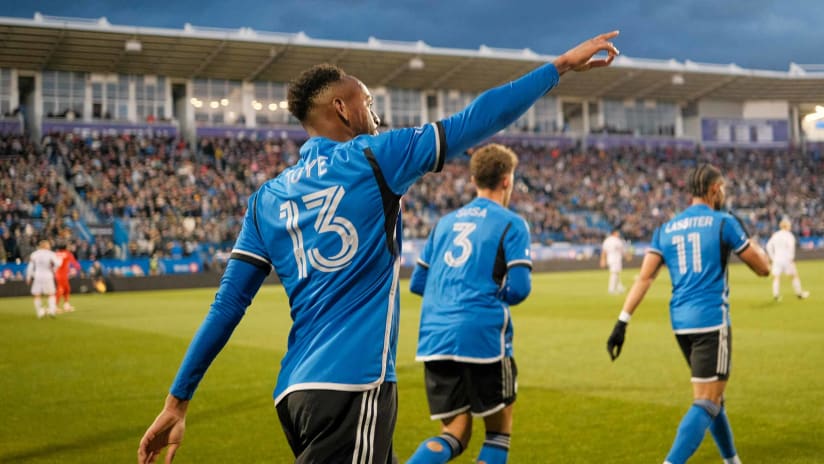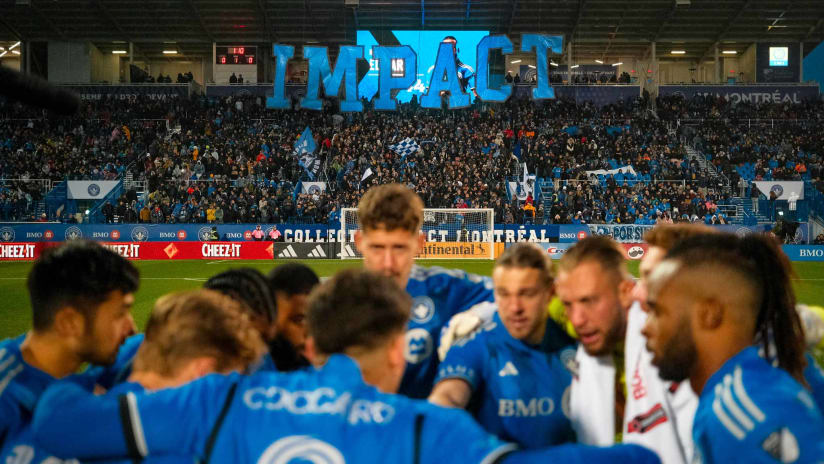From 2003 to 2007, Montreal registered no more than four losses on the road, impressive stats considering a schedule that included 14 matches away from home. The Impact’s best showing was in 2005 when the club lost only two road games, to go along with four draws and eight victories. A record like that is the exception to the rule.
From 2005 to 2010, the clubs in North American Division 2 (USL-1 and USSF-2) recorded a winning percentage on the road that ranged from 23,8% to 29,5%.
Right now, only three of the 18 clubs in MLS have a winning record away from home. As far as the NASL’s eight clubs go, only FC Edmonton (an expansion club) and the Carolina RailHawks (league leaders) currently have a positive record on the road.
The explanation that is usually provided for lack of success on the road is that playing abroad leaves players with less time to physically recuperate from the travelling that can often be quite lengthy.
“It’s easier to play at home because there’s less travel involved, so that means less fatigue and more motivation because of our fans, as well as from the families of the local guys,” observed Reda Agourram.
“On the road, far from home, we’re just not as comfortable. Our routines change and we don’t have the same reference points. In Tampa Bay, for example, we played on a synthetic surface that wasn’t very good. Plus, we still weren’t used to the heat, whereas our opponents were.”
On that level, North America sets itself apart from Europe.
“The difference between playing at home and on the road is much bigger here than it is in Europe,” said Philippe Billy. “The trips are longer and the stadiums are all different. There are a ton of factors to take into account, which can be difficult at times.”
The right-back, who recently became a father for the second time, is coping with another disconcerting North American reality.
“In France or Italy, you play a match at home, then a match on the road,” he pointed out. “The calendar always forces you to alternate between the two. Here, with the Impact, it’s less balanced. We played five of our first seven matches on the road and we’re about to play another two consecutive matches away from home (Atlanta and Puerto Rico). It’s something to consider when evaluating a team’s success. Thankfully, we’ll soon be playing a lot more at home and that’ll be great. We’re much more comfortable at Saputo Stadium.”
Under the circumstances, it’s even more important to be well-prepared mentally. A number of little things can disrupt that side of a player’s game, especially on the road.
“The players with families often think of them, because they’re not at home to deal with any of the problems that might occur,” said Reda Agourram.
Father and family man, Argentina’s Leonardo Di Lorenzo knows a thing or two about the balancing act.
“It’s not an ideal situation. It’s even more difficult when we have to hit the road for a week, but it’s what I chose to do and it’s what I love, so I have just to learn to adjust to the disadvantages of my career,” said Di Lorenzo.
“It’s five years that I’ve been playing for the Impact, so I’m pretty used to it by now, but there always adjustments that need to be made on the road. At home, you can just relax ahead of the match. Life on the road is completely upside down.”
The concept of the 12th player, the hometown crowd, often comes up in conversations with the players.
“Personally, I prefer to play in front of more than 10,000 people at Saputo Stadium,” said Di Lorenzo. “There’s obviously more pressure playing in Montreal, but that makes it even easier to stay motivated.”
Pierre-Rudolph Mayard agrees with his teammates and understands the advantages of playing in Montreal even more than they do, after getting loaned to the Charleston Battery (3rd division) for half a season in 2010.
“Living in hotels when we’re on the road isn’t very realistic,” said Mayard. “It’s almost like we’re prisoners at the hotel because we’re closed in with very few things to do. We’re free men in Montreal.”
For Mayard, a large home crowd helps him perform better on the field while on the road, “there’s only the technical staff to motivate and encourage us.”
Backup goalkeeper Evan Bush presented a different opinion about matches on the road. It’s not only because he’s an American wearing a Montreal jersey that he feels like he goes home every time he plays a road game (except for visits to Edmonton).
“I love going on the road, because it costs less for me to call my fiancée when I’m in the United States,” said Bush with a laugh. “Seriously though, I’ve always loved playing in a rival club’s stadium, because there’s nothing I love more than contradicting the probability of success on the road, not to mention silencing the fans. I feed off of the booing from opposing fans. For me, it’s a massive source of motivation.”
It takes a little bit of everything to make it work on the road, but is there a special ingredient that makes the biggest difference when a club is thrown into the adversity of a match on hostile turf?
“The solidarity of the group,” said Bush. “It comes down to a feeling of unity between the players. We don’t have to play the best soccer when we’re on the road. It’s our opponent that wants to put on a show. If we stick together and manage to steal a goal here and there, we’ll have success on the road.”
Martin Smith, Impact Media
CFMTL Media




